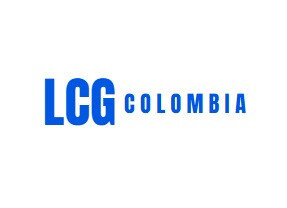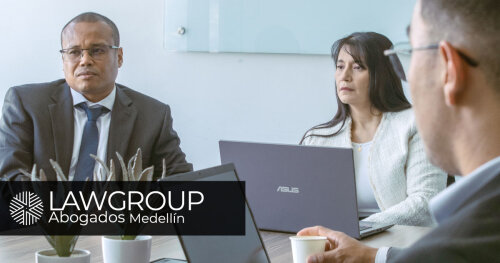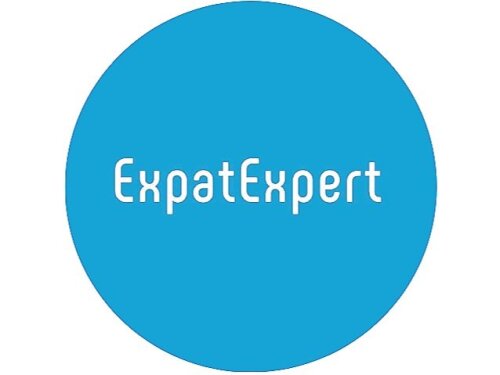Best Collaborative Law Lawyers in Bogota
Share your needs with us, get contacted by law firms.
Free. Takes 2 min.
Free Guide to Hiring a Family Lawyer
List of the best lawyers in Bogota, Colombia
About Collaborative Law in Bogota, Colombia
Collaborative Law is an alternative dispute resolution process that empowers individuals to resolve conflict, particularly in family and civil cases, without going to court. In Bogota, Colombia, Collaborative Law is increasingly recognized as an effective approach to settle disputes amicably and with respect for the interests of all parties involved. This legal process emphasizes cooperation, open communication, and voluntary participation, with all parties—and their specially trained lawyers—committing to resolving their issues outside the litigation system.
Why You May Need a Lawyer
Individuals may require the assistance of a Collaborative Law lawyer in several scenarios. Common situations include divorce or separation, child custody and visitation agreements, division of marital assets, business dissolution, employment disputes, estate planning, and conflicts among business partners or family members. Having a lawyer ensures that your interests are protected, helps clarify your options, and increases the likelihood of reaching a fair settlement without resorting to lengthy or costly court proceedings.
Local Laws Overview
In Bogota, Colombia, Collaborative Law is founded on principles set forth by national and district legislation concerning alternative dispute resolution methods. Key legal frameworks include the Código General del Proceso (General Procedure Code), which recognizes and promotes amicable settlement mechanisms like negotiation and mediation. The Colombian Family Code and Civil Code further support the use of negotiation and cooperative agreements in family and civil matters. While Collaborative Law is not yet governed by a dedicated statute, it is compatible with existing laws and judicial encouragement for conciliation and out-of-court settlements. Participation is voluntary, and confidentiality is strongly protected by the rules and by law, making the process a reliable choice for those seeking privacy and dignity.
Frequently Asked Questions
What is Collaborative Law?
Collaborative Law is a legal process in which parties work together with trained lawyers to resolve disputes outside of court through structured negotiation and cooperation.
How is Collaborative Law different from mediation or arbitration?
While mediation involves a neutral third party helping reach a solution, and arbitration results in binding decisions by a third party, Collaborative Law centers on negotiation among the parties and their lawyers, without third-party determinations.
What types of cases are suitable for Collaborative Law in Bogota?
Cases related to divorce, child custody, division of property, inheritance matters, business disputes, and employment conflicts are often well suited for Collaborative Law.
Will my Collaborative Law agreement be legally binding?
Yes, once the agreement is finalized and signed by all parties, it can become legally binding and, if necessary, can be filed with the court for recognition and enforcement.
What are the most important benefits of Collaborative Law?
Key benefits include greater privacy, reduced emotional and financial costs, faster resolution, improved communication, and more control over the outcome.
Do both parties need to agree to use Collaborative Law?
Yes, participation is voluntary. Both parties, along with their lawyers, must commit to working collaboratively and openly share necessary information.
Can Collaborative Law be used if there has been domestic violence?
Collaborative Law may not be appropriate in cases involving a significant imbalance of power or where safety concerns exist. Lawyers can help assess whether the process is suitable.
How long does the Collaborative Law process take?
The timeline varies depending on the complexity and the parties’ willingness to cooperate, but Collaborative Law typically resolves disputes more quickly than traditional litigation.
What happens if the Collaborative Law process fails?
If the process is unsuccessful and litigation becomes necessary, the collaborative lawyers must withdraw, and the parties seek new legal representation for court proceedings.
How do I find a qualified Collaborative Law lawyer in Bogota?
Look for lawyers who are trained in Collaborative Law and members of local or national alternative dispute resolution associations. Many law firms in Bogota offer this specialized service.
Additional Resources
If you are seeking further information or assistance with Collaborative Law in Bogota, the following organizations and resources may be helpful:
- The Colombian Ministry of Justice (Ministerio de Justicia y del Derecho) which promotes access to justice and alternative dispute resolution programs
- Local Conciliation Centers (Centros de Conciliación), many of which offer Collaborative Law and mediation services
- The Bogota Chamber of Commerce (Cámara de Comercio de Bogotá), known for its dispute resolution center and training programs in negotiation
- Professional lawyers registered with the Consejo Superior de la Judicatura, which can ensure your lawyer is properly accredited and trained in alternative dispute resolution
Next Steps
If you are considering Collaborative Law to resolve a dispute in Bogota, Colombia, your first step should be to schedule a consultation with a lawyer experienced in this process. Prepare any relevant documents and clarify your goals for the outcome. Ask the lawyer about their experience with collaborative cases, the anticipated process, and the likely timeline and costs. Agree on next steps for engaging the Collaborative Law process, such as inviting the other party to participate and formally retaining counsel. Remember, an informed and prepared approach increases the likelihood of a positive and efficient resolution.
Lawzana helps you find the best lawyers and law firms in Bogota through a curated and pre-screened list of qualified legal professionals. Our platform offers rankings and detailed profiles of attorneys and law firms, allowing you to compare based on practice areas, including Collaborative Law, experience, and client feedback.
Each profile includes a description of the firm's areas of practice, client reviews, team members and partners, year of establishment, spoken languages, office locations, contact information, social media presence, and any published articles or resources. Most firms on our platform speak English and are experienced in both local and international legal matters.
Get a quote from top-rated law firms in Bogota, Colombia — quickly, securely, and without unnecessary hassle.
Disclaimer:
The information provided on this page is for general informational purposes only and does not constitute legal advice. While we strive to ensure the accuracy and relevance of the content, legal information may change over time, and interpretations of the law can vary. You should always consult with a qualified legal professional for advice specific to your situation.
We disclaim all liability for actions taken or not taken based on the content of this page. If you believe any information is incorrect or outdated, please contact us, and we will review and update it where appropriate.














